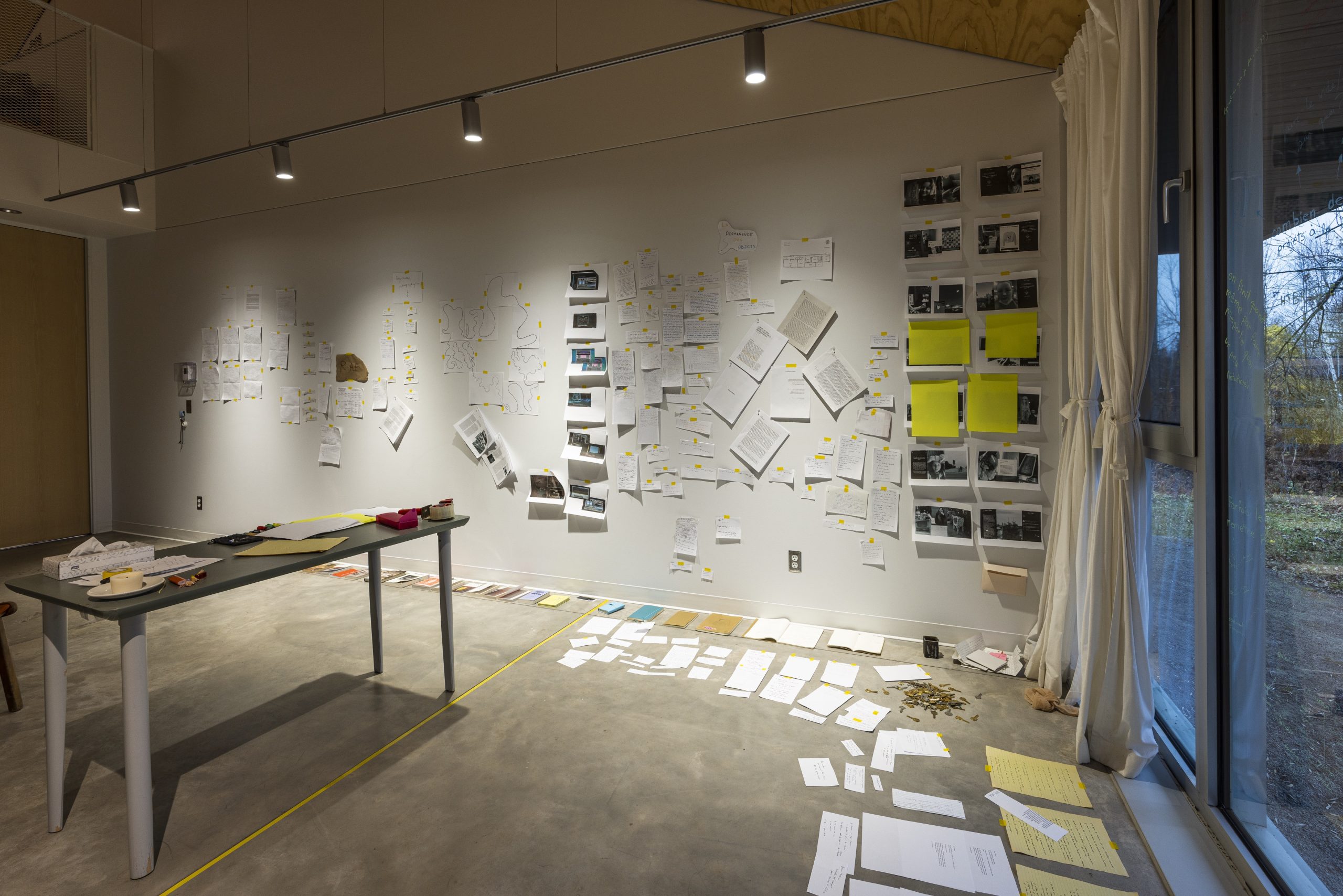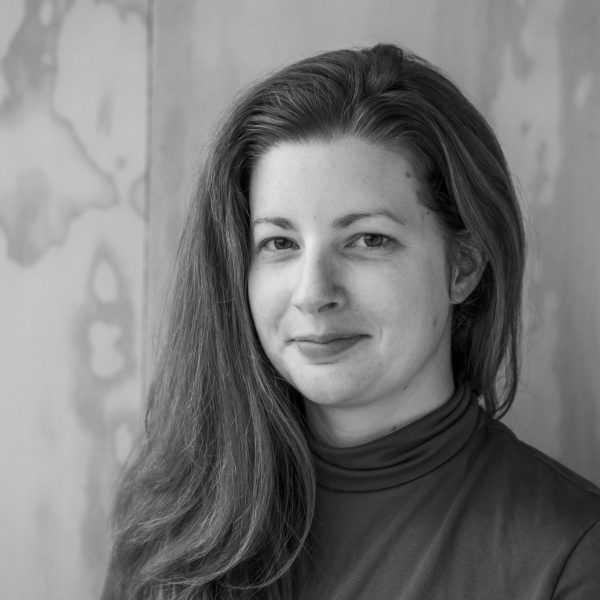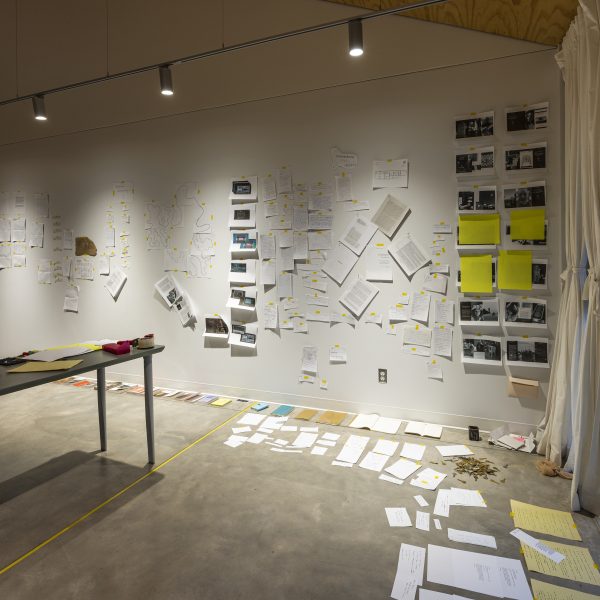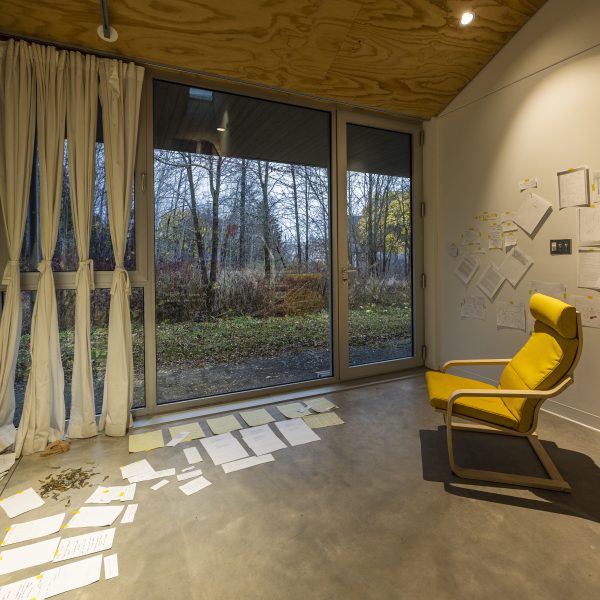virginie fauve
Testimony
A poet interested in the relationship between text and image, virginie fauve is a true literary explorer. Indeed, she prefers to progress through questions rather than seeking a project’s outcome. That being said, she has several paths to clear – among others, the relationship between images and words, and the necessity of being a historian to write about art. This is part of what she sought to resolve during her residency at Est-Nord-Est.
Having arrived directly from a writing residency offered by La Rencontre internationale d’art performance de Québec (RIAP), fauve spent the fall at Saint-Jean-Port-Joli writing micro-essays that intertwine art history, relations with images, and literary creation. Her recent experience at RIAP, at which her intent was to react poetically to performance works with emotions, led her to wonder about the place of sensitivity in art writing. A string of questions unfurled: Can one write about art from the starting point of sensitivity? How can the performance of writing be deconstructed? What exactly is writing? Writing a book, an essay, a sentence? She tried automatic writing, different writing methods, attempted to deconstruct the structures with which she chooses to write. Gradually, she accepted having several ideas at the same time, working with several texts and projects at once. She used the large window in her studio on which to write keywords and lists and to draw diagrams. This exercise made her want to experience the physicality of writing: instead of being attached to her computer throughout the process, she now wanted to add a step of writing while moving.
In her approach as a poet sensitive to images, fauve observed that reactions to artworks and exhibitions are emotional rather than rational. In residency, she sought to balance analysis against the “I” that, out of concern for objectivity, must be excluded from art-criticism writing. As Kate Zambreno wrote in Heroines, which fauve brought with her to Est-Nord-Est, removing the “I” from essays is a form of repression. It is like obeying an order to be silent, claiming objectivity when there is nothing objective in the experience of literature, which involves confrontation, engagement, and amazement. Through her writings, fauve does not wish to teach her readers about art history; rather, she wants them to play with art, and she invites them to take advantage of their own intuitions.
Biography
Born in Abitibi, virginie fauve lives and works in Montréal. Her first poetry collection, la poussière nous cerne parce qu’elle nous ressemble, was published by Lézard amoureux. A literary butterfly, she flits between poetry and prose, magazines and fanzines, and sometimes ventures into events and performances. She is interested in the text–image relationship, independent publishing, and literary history from a feminist perspective.
Discover
Newsletter
Keep up to date with the latest news!
